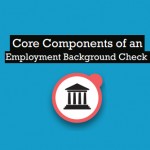
The job title of human resource manager is generally synonymous with terms like trustworthy, ethical, fair, credible and an advocate for employees of an organization. It seems nearly inconceivable to associate human resource professionals with behaviors such as fraud and theft. For many organizations, trusting their HR staff to recruit, screen, and manage thorough human resource processes for the company is paramount. HR professionals typically have access to employees’ personal and confidential information, such as performance reviews, salary data and health records. As a background screening company, it is typical for the staff at First Contact HR (FCHR) to provide decision-support to its clients when the facts do not add up.
Recently a company sourced and hired a human resource manager for one of their office locations from an employment agency. The agency had a stated policy on its website that it performed background investigations on all their contracted staff. As a result, the company decided not to duplicate efforts by performing their own background check of the new hire. Had this particular company ran their own background investigation during the onboarding process of this individual, they would have discovered inconsistencies with some of the credentials provided during the hiring process by the employee.
Shortly after hiring the HR professional, the company began receiving troubling information related to the identity of the new employee. The company’s Corporate HR team received a call from a state unemployment agency requesting information on an individual who applied for unemployment. To the company’s surprise, it was for their newly hired, HR manager. The company responded to the agency by stating that the HR manager was still employed with their organization, however several days later received a call from the same state unemployment agency requesting they provide identification data on the new employee.
The agency had reason to believe that the newly hired employee was not who they claimed to be. With growing suspicion, the company opted to conduct their own background check (through First Contact HR). During this process, a number of inconsistencies became evident, including significant discrepancies with the applicant’s academic and past employment verifications.
It was soon discovered that the HR manager in question was in fact working under another person’s identity. The state unemployment agency called and instructed the identity fraud victim to contact the company where the perpetrator worked. It turns out the identity assumed by the soon-to-be-fired HR manager was none other than and their former colleague. The company’s newly hired HR manager had stolen this person’s identity to hide a very lengthy criminal past. Once First Contact HR obtained the true identity of the HR manager, a full investigation was conducted and unveiled a habitual criminal past of identity theft, fraud, and other egregious crimes.
The company’s corporate executives decided to press charges, and the employee was arrested.
When it comes to hiring, no employee – regardless of socioeconomic status, education level, career level or background – is exempt from unethical behavior. It is in your company’s best interest to run thorough and comprehensive background checks on all new employees. Be sure to keep in mind that when working with employment agencies, you request proof of a background check prior to hiring an individual. It is also recommended to conduct periodic audits of the background screening practices of the employment agencies you use.













